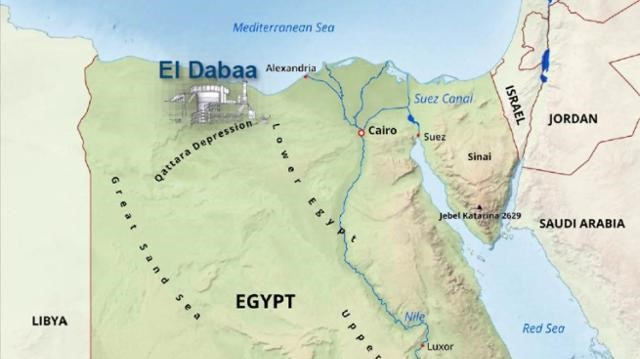This article was originally published on Hankook Ilbo and translated by OKN Correspondent.
Korea Hydro & Nuclear Power (KHNP) is expected to sign a final export contract for the second side (second system) construction project of the four-reactor nuclear power plant in El-Dabaa, Egypt in mid-August. There have been concerns that the possibility of international sanctions against Russian companies that have won the first-tier business since the Russian invasion of Ukraine has been hampered, but the company has not been included in the sanctions. If the export contract for the trillions won is successfully concluded, 13 years after the UAE’s Barakah power plant contract, this will be a sight of relief for the nuclear industry.
According to KHNP’s data on the status of the Egyptian El-Dabaa nuclear power plant submitted to the Democratic Party National Assemblyman Hong Jung Min’s office on May 25, KHNP entered the final stage by coordinating details for signing a contract with the Russian company, JSC ASE (Joint-Stock Company Atomstroyexport). KHNP President Jung Jae-hoon also wrote on his social media site Facebook account in the middle of this month, “A lot of companies from the US and other ally nations are participating in the project, so we will be able to make a final contract within a short period of time.” When asked about the date of the final contract, KHNP drew the line and said, “It has not been decided yet.” However, in the nuclear power industry, it is widely observed that the conclusion is likely to be made in the middle of next month.
El-Dabaa is a coastal city near the Mediterranean Sea, about 300 km (186 miles) northwest of Cairo, the Egyptian capital, and the Egyptian government plans to build a nuclear power plant here. JSC ASE, a subsidiary of the Russian state-owned nuclear power plant company Rosatom, won a total of $30 billion (about 39 trillion Won) worth of projects from the Egyptian Nuclear Power Authority (NPPA) in 2017 to build a nuclear power plant featuring four 1,200 megawatt (MW)-class Russian-designed pressurized reactors (VVVER)-1200 [water-water energetic reactor design]. The goal is start operations on reactor one in 2028.
JSC ASE is excluded from the sanctions list against Russia
In December last year, JSC ASE selected KHNP as the sole subject of the secondary circuit and electric output component, excluding the primary system (first system) related to the reactor facility, and carried out negotiations. The secondary circuit plays a role of making the primary side’s fission into electricity through turbine generators. If KHNP wins the contract to supply and install the secondary circuit construction and equipment, the amount will reach into trillions of Won.
KHNP and JSC ASE originally planned to end the contract negotiations by April this year, but it was delayed as Russia’s invasion of Ukraine led to international sanctions against Russia. The reason was that JSC ASE could have been included in the sanctions list, and even if the contract had been obtained, western nations could have removed Russian banks from the SWIFT network (Society for Worldwide Interbank Financial Telecommunication), thus leading to higher chances of defaulting on debt. Another reason for the delay in finalizing the contract was due to being mindful of the US’s confrontation with Russia over the invasion and sanctions.
However, it has been confirmed that: 1) The “Specially Designated Nationals and Blocked Persons List (SDN)” released by the U.S. Treasury Department does not include JSC ASE and its parent company, Rosatom; 2) The energy sector is suspended from the SWIFT exclusion; and 3) It is said that the possibility of the sanctions against Russia being applied to the contract is slim, due to including the participation of western companies such as General Electric (GE) of the US and Assystem of France.
An industry official said, “It is regrettable that South Korea cannot get the whole contract like it did in the UAE with the Barakah nuclear power plant, and participate in the business as a subcontractor with a Russian competitor,” but added that, “It will be a shot in the arm for the domestic nuclear power industry, which has been suffering from lack of work.” Hyundai E&C and Doosan Enerbility will be in charge of the project, and many of the auxiliary devices such as cooling machines and pumps are expected to be from domestic South Korean companies.



